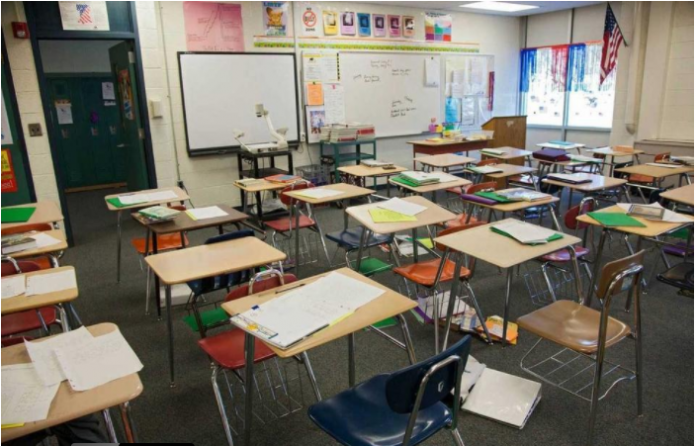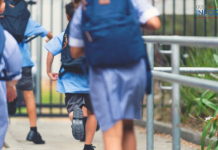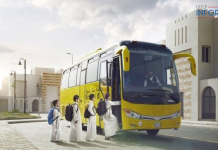New academic year approaches with concerns over schools, student and staffing numbers
Students in Dubai are set to return to school in September after more than five months away from the classroom.
However, those “first day back” nerves have been exacerbated by the coronavirus pandemic with pupil safety thrust to the top of the class, while operators continue to pick through the economic tsunami that blasted the industry in the closing months of the previous academic year.
The largest private school operator in the UAE and among the biggest education providers globally, GEMS Education came under fire for employing a means test formula to rule on any discounts for parents in the last term, despite a large majority of education establishments offering anything from five percent to 20 percent as students switched to online learning in March and the harsh, economic reality of Covid-19 began to bite.
Securing the future
However, even that hasn’t stopped them having to make difficult decisions over the summer months.
Dino Varkey, group chief executive officer, GEMS Education, told Arabian Business: “We recently announced the closure of GEMS Heritage Indian School and Little GEMS International Al Barsha, as well as the unification of GEMS Al Barsha National School for Girls and GEMS Al Barsha National School for Boys. These decisions were carefully taken in consultation with the education authorities in the UAE.
“We know these will cause disruption to our parents and their children, because we understand how difficult it is to uproot a child from a school they enjoy, teachers they respect and friends they love.
“However, by making the right decisions today, we will be able to secure the futures of the thousands of children in our care, both now and well into the future.”
The main reopening models include having a normal school day; going to class in either the morning or afternoon; going to school on alternate days; a 100 percent distance-learning provision for those who request it for term one (in agreement with the school); and a mix of in-person and online classes.
In Dubai’s private education sector, it’s very much a numbers game. At the start of the 2018/19 school year, the most recent figures revealed on Dubai’s Knowledge and Human Development (KHDA) website, there were 209 private schools operating in the emirate and 289,195 students.
Increased enrolment
A drop in student numbers seems almost inevitable given the expat exodus at the hands of the economic crisis caused by Covid-19, and yet operators in Dubai remain bullish ahead of the opening school bell.
“Re-registrations are very strong and new student recruitment is surpassing previous years,” said Alan Williamson, CEO of UAE schools group Taaleem, who offered discounts between 20-25 percent across different year groups, with the discount spread over two terms – 50 percent of it deducted from last year’s term three and 50 percent off the coming term one.
While Mark Ford, principal of The English College Dubai, was more “cautiously optimistic”, but said they were “very pleased” with the numbers of existing students returning for the next year as well as those joining the school for the first term’
He told Arabian Business: “Our admissions team have been exceptionally busy over the summer, welcoming families from both Dubai and worldwide.”
Certain schools have even extended their re-enrolment deadline to allow parents to cope with the pressures of the Covid-19 situation.
David Cook, chief education officer for the Repton family of schools and headmaster at Repton School Dubai, admitted that he had seen some movement from families heading back to their home countries, but added at the same time that pupil recruitment “remains strong”.
He told Arabian Business: “We expect a modest decline in pupil numbers for Term 1, but medium term recruitment and retention looks very encouraging.”
Revised packages
Falling student numbers is one thing, but the industry has also had to contend with a potential fall in teacher numbers, exacerbated in some cases by a drop in salary or benefits, such as housing allowances.
Diane Jacoutot, managing director at Edvectus International School Recruitment, told Arabian Business that those schools which have revised their packages are very much in the minority.
However, she said: “We were contacted by over a dozen teachers from one school in one of the Northern Emirates who cut pay by 30 percent and another which cut housing allowances in half. We are seeing many schools avoiding teachers who might be perceived to be more expensive, such as those with dependent families.
“We have seen a much larger than normal number of schools cutting staff – we have had two times the number of teachers registering who are in the Gulf compared to last year, largely because contracts were cut. These are teachers who are in subjects that are lower need due to the pandemic such as counsellors, middle leaders, early years and kindergarten teachers, social studies and PE.”
Cook said they had worked “very hard” and no reductions in teachers’ salaries were made across the board. However, he added that “benefits were reassessed and marginal changes were made in order to safeguard teachers”.
As the world learns to live with coronavirus, hopefully those first-day nerves for students, staff and parents, won’t last long.




